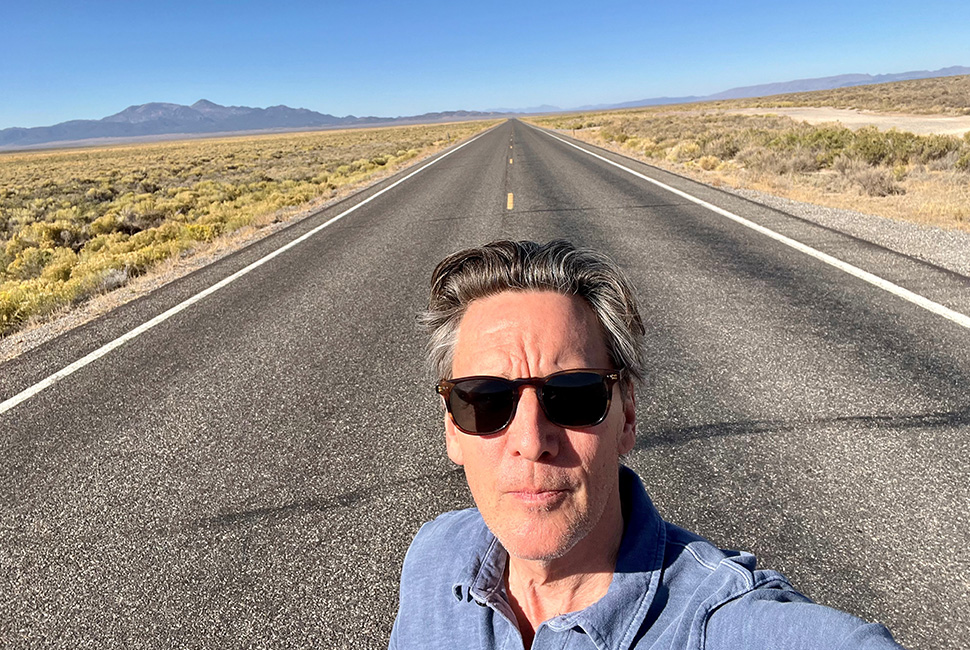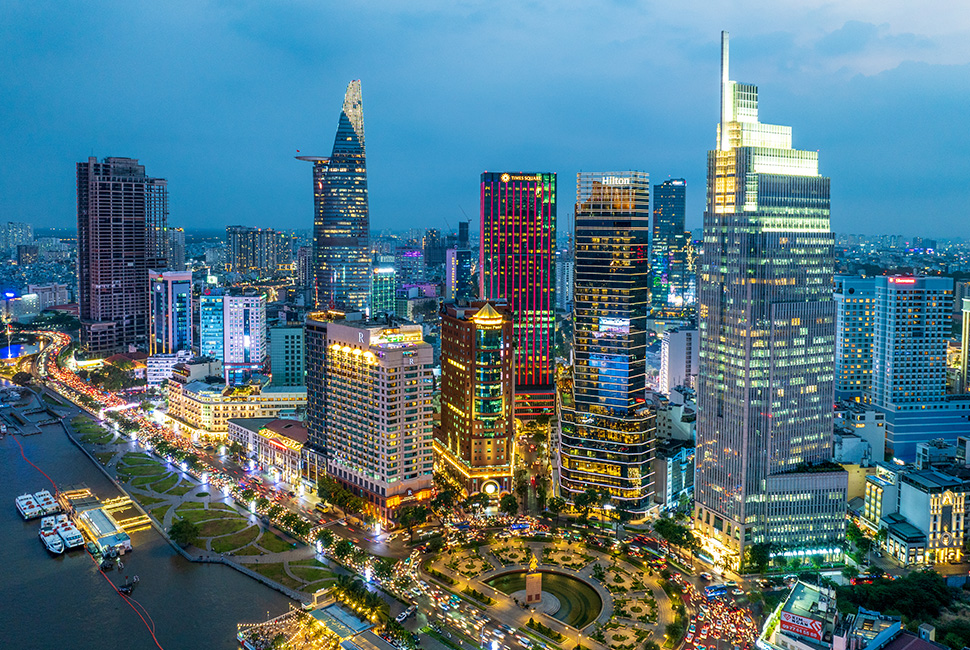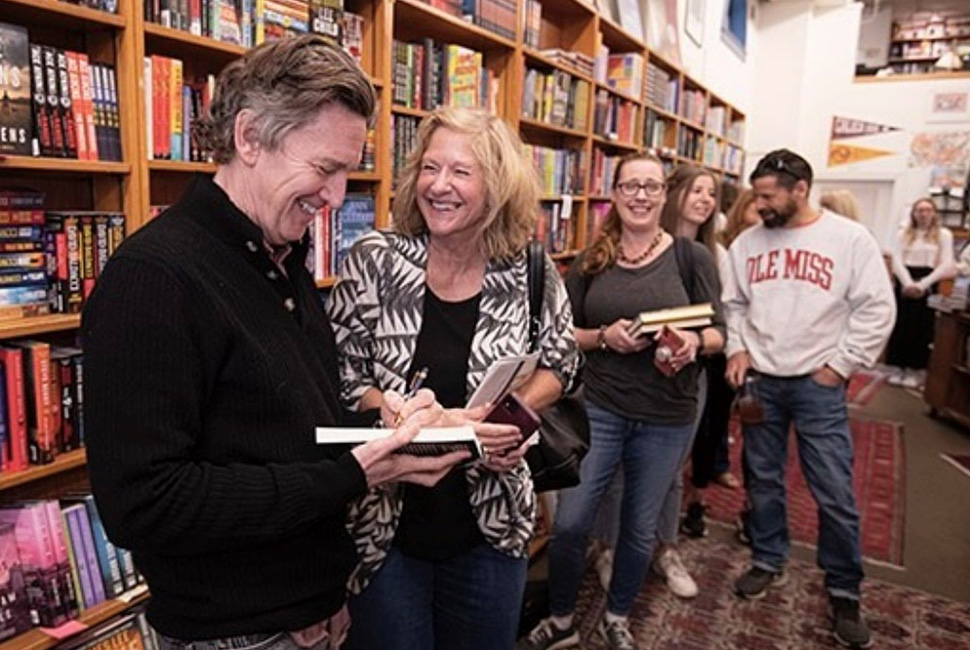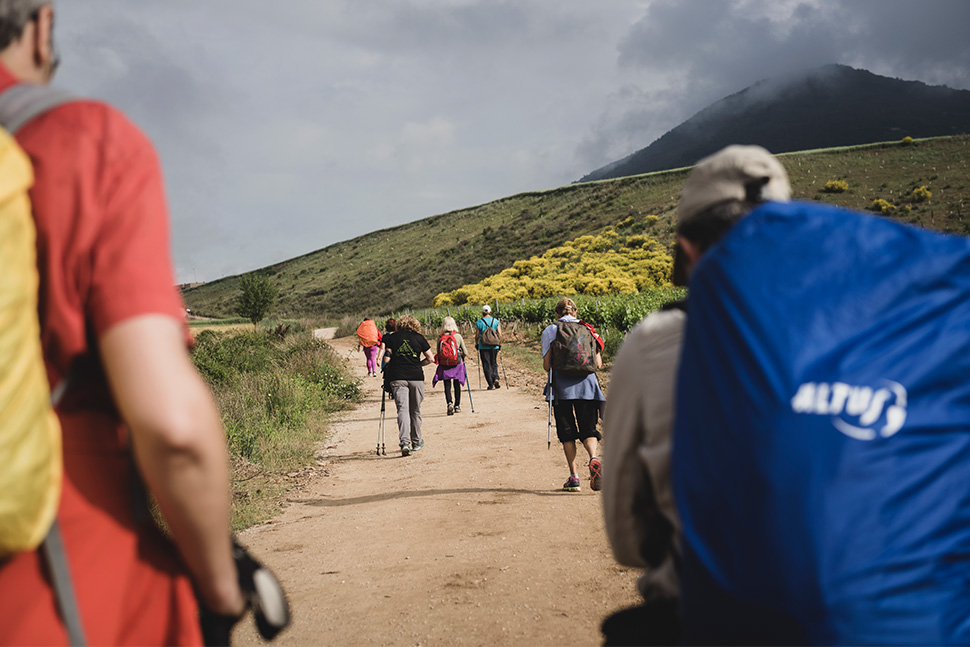

Andrew McCarthy was one of the esteemed journalists invited to cover Forbes Travel Guide’s Summit in Monaco in February. But when he was being stopped for photos and autographs in the conference center hallways, it wasn’t because of some brilliant piece on Marrakech markets he wrote for National Geographic Traveler. People wanted to connect with the person McCarthy was in an earlier chapter of his life.
Long before luxury travel events, a twentysomething McCarthy was Hollywood royalty, starring in popular ’80s movies like Pretty in Pink and Weekend at Bernie’s, kicking it with Demi Moore and hanging on posters in every 14-year-old girl’s bedroom. As time progressed, he realized he was as talented behind the camera as he was in front of it, so he began directing episodes of popular shows like Gossip Girl and The Blacklist and most recently he wrote and directed the Brat Pack documentary Brats.
But a funny thing happened to McCarthy as he was walking all those red carpets — he found himself wanting to trek around the world more. When we sat down with McCarthy, he talked about the Asia trip decades ago that sparked his travel-writing love and the heartfelt interactions he still has with fans that conjure so much joy.

What did you think about Forbes Travel Guide’s Summit?
It was really interesting because the environment that’s been created is what I found most interesting about it. The environment is spacious and inclusive and presents everybody with an opportunity without any hard sell. That’s what I found: a really elegant and restrained way to approach business. That seems to match the Forbes [Travel Guide] brand. I found it really lovely in that way. It had that kind of spaciousness about it as opposed to a pushing and an aggressive sell.
If you told the 25-year-old version of yourself that you’d be at Forbes Travel Guide’s Summit in 2025, what would that younger self say?
“Huh.” But that’s the interesting thing about life, isn’t it? You don’t know where you’re leading. Often, you think you do sometimes. I was doing all those movies and things in my 20s. At one point in my late 20s, I started traveling alone to faraway places, and I stayed away for a long time. It changed my life.
Travel transformed my place in the world. It took away a lot of the fear I had in the world that I used to operate with. By putting myself out in situations that were out of my comfort zone, I learned to walk through that fear. It was a transformative experience for me.
I sort of drank the travel Kool-Aid. I kept traveling. And then, I started writing about travel for magazines. And then, I became successful at it quickly because of two things: I knew it had happened to me, that travel is a transformative thing. It’s not about bucket lists or Instagram posts, but it really is a profound, life-changing experience. And the other thing is I knew from being an actor to tell a story, don’t sell a destination.
Tell me more about those first couple of trips.
Well, the first thing I did was I walked across Spain on the Camino de Santiago. I randomly read a book about it. That was a really profound experience. That was life-changing. I walked 500 miles across Spain. That’s really when I had one of those white-light experiences that people have where I was in a field of wheat sobbing, going, “What the f— was my life? What happened?” I had this revelation that I was so fear-based. I never knew that fear was a factor in my life until that moment of its first absence. I felt like myself.
My wife is Irish. She has a lot of good Irish sayings, and one of them is, “I felt like myself from the toes up.” And that’s what I felt like when I had that moment. I found myself in a way that I had only felt one time previously, and that was the first time I walked out on stage as a teenager in my high school play. I felt like myself then. I felt like it again in Spain when I had that sort of revelation. That’s why I kept traveling. I want more of that feel.
Do you feel that tingle in your toes every time on a trip?
No, you don’t feel it every time. But you put yourself in a circumstance so that it can happen if it does. Do I feel it every day? No. I felt it a handful of times in my life. You can’t orchestrate things like that. But you carry them with you. I walked across Spain again 25 years later with my son [Sam]. We were in that same spot and everything.

Everyone loves to travel, but not everyone can write about it. How did that transition happen for you? Were you always a good writer?
No, I didn’t write anything in school. I was a terrible student. I’d never read a book until I was 30. But I was traveling in Saigon. I was in a hotel and this kid came up to me on his scooter and said, “Come on, hop on. I’ll give you a ride.” And I’m like, “F— off.” Eventually, I hopped on his scooter, and he showed me around Saigon. And then, I went up to my room, and I was all buzzy after our day out together. I just wrote down everything that happened.
You know, I’m an actor. I’ve said so much bad dialogue that I know good dialogue when I hear it. So, I wrote down all the cool things he said, and suddenly, I realized I had this travel story. It wasn’t like a journal. It was a travel story with a beginning, middle and end. I finished that, and I had that exact same feeling again and went, “Oh, there I am. I feel like myself from the toes up.” So, I started traveling and then just writing these stories with no intention to do anything with them until it was 10 years of doing that. And then, I met an editor of a magazine.
Around what time was this?
My first travel story was published was 2004. I was traveling from the early ’90s to 2004, writing this down. And then, I met this [National Geographic] editor and I said, “You ought to let me write for your magazine.” And he said, “You’re an actor, dude.” And I said, “Yeah, but I can tell a story. That’s what I do for a living.” He said, “That’s a good answer.” So, he let me write one. I won an award. The minute you win an award for something, you’re a genius.
Like I said before, why I became successful quickly was because of those two reasons. Tell me a story. I had experience with travel changing my life. That’s underneath every story that I write. I never [literally] write about that. It’s sort of the energy underneath it. It’s like, “No, this matters. This is important. This is value. This isn’t just a thing to brag about.” I started writing [stories], and then I evolved into writing books and things. The older I’ve gotten, the more I realize I like sitting alone in a room writing. It’s like that old Joan Didion line, “I write to figure out what I’m thinking.” I write to figure out what I’m feeling.
Walking around Monaco, I’m sure you’ve had moments where people recognized you for your other career. Does that ever get tiring?
When I was younger, I was made uncomfortable by it. But now, I realize I can give them a great gift by simply receiving them. To a certain generation of people, I represent their youth. They come up to talk to me, their eyes glaze over and I realize very quickly they’re not talking to me anymore. They’re talking to their own youth. All I have to do is receive that. It’s lovely. They’re coming up to me in a very gracious, appreciative way. How can that be bad? It’s opened doors for me in many ways. All over the world I’ve met people that I wouldn’t have thought.

You’re a prolific director as well. Is there a feeling that you get behind the camera that you haven’t found anywhere else?
Sort of a combination. If you’re acting, you’re the kid and you’re just approaching everything from a very subjective [angle], your point of view only. When you’re directing, you’re the grown-up and you have to orchestrate other things.
Writing is sort of a combination of both. You have to be very subjective and then pull back. They all seem like different manifestations of the same kind of thing. But I find there’s certain aspects of directing that suit my temperament more than acting. The more I direct, the more I realize I don’t really need to be the grown-up in the room anymore. I don’t care anymore.
That comes with maturity.
For a while, it was important to me to feel. Now, I don’t give a s—, which actually makes me a better director. If you have the sort of assurance of something, you’re not threatened by anything.
When I first started [directing] and people would say something to me, I’d have a defensiveness. That’s the way I was with anything when I was young. I would just be defensive about it. But the better you get at it, the less defensive you write and the more inclusive you can be and go, “That’s actually a good idea. I’m glad I thought of it.” That’s the director there. All the good ideas are my ideas. It doesn’t matter where they come from. That’s my idea.

Can you name a place you’ve visited where you were surprised by how much you enjoyed it?
I’m never good at that because I kind of like anywhere. Like my kids, if I’m not having a good time, I either need a nap or a snack. But I like really remote places. I love Patagonia. I like the Sahara Desert. I like really remote spots just because I live in New York.
I had a bowl of lemongrass soup in Luang Prabang, Laos, that I’ve never forgotten. There are certain moments and little things. You never know what those are. But things converge, and you have an indelible moment. And then there are other kinds of things that are orchestrated to be incredible [and they aren’t]. Yeah, it was good, but I always find those random encounters in random things to be much more profound and meaningful to me.
What other big trips are you excited about this year?
I’m going back to Dublin [after The Summit]. I’ll be back there until I head home to New York. And then, I was going to maybe walk across Spain again.
I’ve got to do that.
Oh yeah. It’s life-changing. It’s the best thing I’ve ever done twice. I did it 30 years ago and about four years ago. I was thinking I’d do it again. But I generally don’t plan. If I know I’m going somewhere, I’ll just get a place for the first night, and then I’ll never plan beyond that. I prefer to just follow my nose. I’m not great with an itinerary.
